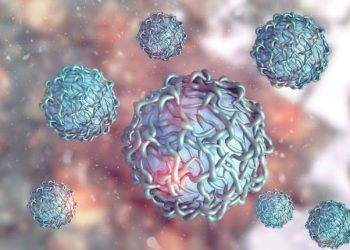Bladder cancer occurs when cells in the bladder lining become abnormal. There are different types of bladder cancer, and some are more serious than others. Some are noninvasive, while others grow into the muscles of the bladder wall. Other kinds of cancer may spread to other parts of the body.
Intravesical Chemotherapy
After a surgical procedure to remove a bladder tumor (transurethral resection of a bladder tumour, or TURBT), some people have chemotherapy to reduce the risk that cancer will return. This is called intravesical chemotherapy. In this treatment, a healthcare professional injects the chemotherapy medication directly into the person’s bladder through a tube (catheter). The medication stays in the bladder for 1 to 2 hours and then is drained out of the body. During this time, the person may have a lot of blood in their urine. It is important to drink plenty of fluids to help flush the kidneys.
This systematic review and network meta-analysis analyzed data from randomized controlled trials that evaluated the oncologic outcomes of intravesical chemotherapy and/or immunotherapy for intermediate-risk NMIBC. This included studies that met the PICOS (population, intervention, control, outcomes, and study design) criteria for inclusion.
The results showed that intravesical chemotherapy and BCG were significantly superior to weekly chemotherapy alone in reducing the risk of tumor recurrence in patients with intermediate-risk NMIBC. The findings support the use of BCG and intravesical chemotherapy in patients with intermediate-risk NMIBC following TURBT. The authors also recommend that patients be carefully counseled about the potential benefits and adverse effects of intravesical chemotherapy.
NMIBC is the fifth most common cancer in the United States, and most cases are in the superficial or non-muscle-invasive stage. The most common treatment for this stage is transurethral resection of the bladder tumor (TURBT), which can be effective in preventing the cancer from returning or progressing to muscle-invading disease. However, despite a high early success rate, approximately 25% of patients will develop recurrence or progression within five years after TURBT. This is why it is important to use adjuvant therapy to prevent the disease from coming back in the bladder lining.
Intravesical chemotherapy uses anti-cancer drugs that are injected into the bladder with a catheter, and it is usually given once a week for six weeks. It can cause bladder inflammation, which is a common side effect. This can cause the need to urinate more frequently, burning when you urinate, and a stinging feeling in the bladder. You can help manage these symptoms by drinking lots of fluids and by taking medication.
Enfortumab Vedotin-Ejfv
Enfortumab Vedotin-Ejfv is a targeted therapy that targets Nectin-4, a protein found in many urothelial cancers. It is an antibody-drug conjugate that combines a monoclonal antibody with an anti-PD-1 immunotherapy. It is administered intravenously and is designed to deliver high concentrations of drug to tumor cells. The therapy is undergoing clinical trials for patients with advanced urothelial carcinoma. Currently, it is being used in combination with other immunotherapy agents to improve response rates and survival.
In the EV-302/KEYNOTE-A39 trial, enfortumab vedotin was combined with pembrolizumab and administered to patients with advanced urothelial carcinoma. The trial results showed that enfortumab vedotin plus pembrolizumab significantly improved median overall survival and progression-free survival compared to chemotherapy alone. This was true across several patient subgroups, including cisplatin-ineligible patients and those with visceral metastases. Moreover, this combination was also associated with fewer serious side effects than standard treatment.
The study involved 608 patients from 191 centers in 19 countries. They were randomly assigned to receive enfortumab vedotin or chemotherapy preselected by their investigator. The chemotherapy included docetaxel, paclitaxel, or vinflunine. Patients were treated until radiologic disease progression, other discontinuation criteria were met, or study completion.
The FDA approved enfortumab vedotin-ejfv in December 2023 for use in combination with other immunotherapy agents in the first-line setting of locally advanced or metastatic urothelial carcinoma that has progressed after platinum-containing chemotherapy and a PD-1 or PD-L1 inhibitor. It is the first immunotherapy to be approved as a first-line treatment for this group of patients. The drug is also being investigated in earlier treatment settings for UC. It is being tested in combination with atezolizumab in the neoadjuvant and adjuvant settings, as well as in combination with other immunotherapy agents in patients who have already received a prior PD-1 or PD-L1 agent in the metastatic setting. These studies are being conducted under Project Orbis, an international partnership between the US Food and Drug Administration, the Australian Therapeutic Goods Agency, and Health Canada. This collaboration is aimed at expediting the development of new oncology drugs. This approach allows for simultaneous submission and review of a drug in multiple jurisdictions.
Sacituzumab Govitecan
Sacituzumab govitecan is a chemotherapeutic drug that targets the Trop-2 protein. It is an antibody-drug conjugate that consists of a humanized anti-Trop-2 monoclonal antibody linked to SN-38, the active metabolite of irinotecan, a topoisomerase I inhibitor. The conjugate is designed to target Trop-2-positive tumor cells and deliver SN-38 directly inside the cell. This allows for a high concentration of irinotecan to be released in the tumor microenvironment and kill nearby cells without exposing healthy tissue to the toxic agent.
The FDA conditionally approved the drug for treatment of metastatic urothelial carcinoma after failure of platinum-based chemotherapy and checkpoint inhibitors. The decision was based on the results of TROPHY-U-01, a phase 2 open-label study that enrolled patients with heavily pretreated mUC. The study found that a combination of sacituzumab govitecan and pembrolizumab significantly enhanced response rates, extended durations of response, and improved clinical benefit rates (CBRs) compared with single-agent pembrolizumab.
TROPHY-U-01 enrolled 113 patients who had progressed on at least three prior lines of therapy. They were treated with 10 mg/kg of SG administered intravenously on days 1 and 8 of each 21-day cycle alongside 200 mg of pembrolizumab on day 1 of each cycle. The primary endpoint evaluated was objective response rate on blinded independent central review. Secondary endpoints included duration of response, clinical benefit rate, and progression-free survival.
Sacituzumab govitecan-hziy was well tolerated, with the most common adverse events being diarrhea and nausea. No new safety signals were identified and no deaths were reported in the trial. The drug was also well-tolerated by the genitourinary tract, with only one patient requiring discontinuation of treatment due to grade 4 toxicity.
The drug is currently being evaluated in other hematologic malignancies and solid tumors, including head and neck cancer. In addition, the company is conducting several studies to determine if it can be used in the combination with other cancer drugs or in neoadjuvant therapy. The drug is sold under the brand name Trodelvy. You should not breastfeed while receiving this medication and for a month after your last dose. It can harm your baby. You should not receive live vaccines while taking sacituzumab govitecan-hziy.
Avelumab
Avelumab is an anti-PD-L1 antibody that was shown to be effective in the maintenance treatment of advanced urothelial carcinoma. It is available in the US under the brand name BAVENCIO. It has been approved by the FDA for the maintenance treatment of patients with locally advanced or metastatic UC that have not progressed after four to six cycles of first-line platinum-containing chemotherapy. The maintenance regimen consists of avelumab administered intravenously every two weeks plus best supportive care. This maintenance therapy was investigated in the JAVELIN Bladder 100 trial.
Several noninterventional studies have confirmed the efficacy of avelumab in the treatment of advanced UC, and avelumab is now included in the NCCN guidelines for the management of UC. This narrative nonsystematic review manuscript collates clinical data on avelumab as first-line maintenance therapy in UC. The authors examine avelumab safety and efficacy in prespecified subgroups of the overall patient population and in a range of additional exploratory analyses.
In the JAVELIN Bladder 100 trial, avelumab was shown to improve overall survival (OS) and progression-free survival (PFS) compared with placebo in patients with metastatic UC who received at least four cycles of first-line platinum-containing chemotherapy. In a post-hoc analysis, avelumab was found to have similar efficacy in high-risk subgroups as in the overall patient population and was associated with longer PFS. The avelumab-based maintenance regimen was well tolerated, with an acceptable rate of grade >= 3 toxicity.
Avelumab may cause your immune system to attack healthy cells in your body, which can lead to serious or life-threatening side effects. You should call your doctor right away if you have symptoms such as fever, cough, flu-like symptoms, muscle pain or weakness, stomach pain or diarrhea, red or purple spots on the skin, changes in vision, difficulty breathing, swelling in the ankles or feet, a rash, or jaundice.
Some people receiving avelumab may develop liver problems. If these occur, your doctor will check your blood levels and give you corticosteroid medicine to help reduce the effect. In addition, you should not drink alcohol or take other medications that affect your liver. These medicines include acetaminophen, ibuprofen, and aspirin.









